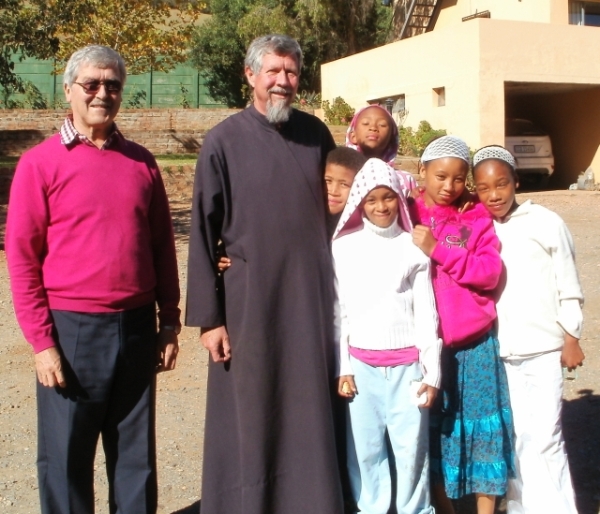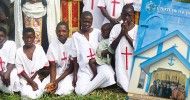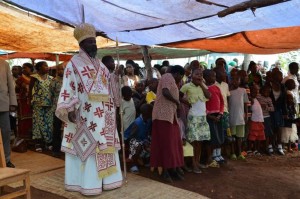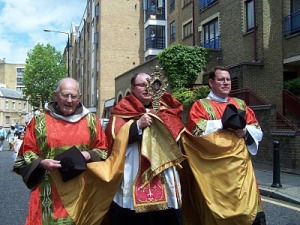 Του Σεβ. Μητροπολίτη Ζιμπάμπουε Σεραφείμ Κυκκώτη
Του Σεβ. Μητροπολίτη Ζιμπάμπουε Σεραφείμ Κυκκώτη Αυτή η Κυριακή έχει καθιερωθεί από την Ορθόδοξη Εκκλησία να είναι αφιερωμένη για το Περιβάλλον. Όσα δεν έχουν καταφέρει να καταστρέψουν οι άνθρωποι για χιλιάδες χρόνια το έχουν καταφέρει οι άνθρωποι των τελευταίων δεκαετιών. Ο κίνδυνος να μετατραπεί ο Πλανήτης μας σ’ ένα επικίνδυνο θερμοκήπιο χωρίς εξαερισμό αποτελεί πλέον μια ορατή απειλή για όλους μας που λίγο απέχουμε για να αποφύγουμε το ενδεχόμενο του αργού θανάτου, όπως τα φυτά του κλειστού θερμοκηπίου που σταδιακά μαραίνονται, ξηραίνονται και πεθαίνουν.
Μόνο όταν ο άνθρωπος αποδεχθεί τη διδασκαλία της Εκκλησίας μας ότι ο Δημιουργός των πάντων είναι ο Θεός, μπορεί να αγαπήσει και την όλη Δημιουργία και να την προστατεύει. Ο άνθρωπος ως η κορωνίδα της Δημιουργίας του Θεού έχει μια ξεχωριστή θέση μέσα στο Πλανήτη μας. Καλείται από τον Θεόν ο άνθρωπος να συνεχίσει το έργο της δημιουργίας του Θεού και ταυτόχρονα να την περιποιείται, δηλαδή να την φροντίζει, να την προστατεύει, να την προάγει και να εργάζεται για την επιβίωσή της.
Έτσι ο Θεός στο πρώτο βιβλίον της Αγίας Γραφής, στο βιβλίον της Γενέσεως, καλεί τον πρώτον άνθρωπον, τον Αδάμ, να δώσει ονόματα στα ζώα και στα πτηνά. Αυτή η συμβολική Βιβλική αναφορά δείχνει ακριβώς τις ευθύνες μας για την προστασία της δημιουργίας του Θεού.
Για να σεβαστούμε φυσικά τη δημιουργία του Θεού πρέπει να συνηδειτοποιήσουμε ότι τα πάντα μέσα στον κόσμο ανήκουν στον Θεόν που τα δημιούργησε. Κατά συνέπεια εμείς οι άνθρωποι δεν είμαστε σε καμμιά περίπτωση οι ιδιοκτήτες της δημιουργίας του Θεού, αλλά οι εντολοδόχοι του, δηλαδή οι διαχειριστές Του. Έτσι δημιουργείται πλέον στη σχέση μας με τη δημιουργία και τη φύση ένα δέος κι ένας σεβασμός. Συνειδητοποιούμε ότι έχουμε να επιτελέσουμε ένα σοβαρόν και υπεύθυνο ρόλο για την προστασία του Περιβάλλοντος που σχετίζεται άμεσα με τον πρέποντα σεβασμό που οφείλουμε όλοι μας προς τον Δημιουργόν μας, δηλαδή τον Θεόν.
Γι’ αυτό τον λόγον το Οικολογικό Πρόβλημα σχετίζεται με το πρόβλημα που δημιουργείται για τον «λόγο του Οίκου» του Θεού (οίκος – λογικό). Έτσι η όλη Δημιουργία, το όλο Περιβάλλον, ο Πλανήτης μας κι ό,τιδήποτε υπάρχει σ’ αυτόν, είναι μ’ αυτή την έννοια ο ευρύτερος οίκος του Θεού όπου υπάρχει και ζει η θεία δημιουργία του Θεού.
Ο άνθρωπος ως αναπόσπαστον μέρος του ευρύτερου οίκου του Θεού πρέπει να προστατεύεται με κάθε τρόπο η αξιοπρέπεια του και τα ανθρώπινα του δικαιώματα. Το ίδιον όμως και κάθε μέρος της Δημιουργίας του Θεού.
Κατ’ αυτόν τον τρόπο εκδηλώνουμε, όπως ήδη τονίσθηκε, τον ιδιαίτερο σεβασμό μας στο Πρόσωπο του Δημιουργού, στα Τρία Θεία Πρόσωπα του Τριαδικού Θεού, του Πατρός, του Υιού και του Αγίου Πνεύματος.
Σε καμμία περίπτωση ο άνθρωπος δεν πρέπει να δημιουργήσει οποιανδήποτε μορφή αντίθεσης ή αντιπαράθεσης με το Περιβάλλον, με τον ευρύτερο δηλαδή χώρον της φύσεως μέσα στην οποία ζει. Δεν πρέπει δηλαδή να πέσουμε ξανά θύματα των νεώτερων χρόνων της Παγκόσμιας Ιστορίας της Ανθρωπότητας, όπου δυστυχώς πολλοί άνθρωποι μέσα από την απάνθρωπηαλαζονεία των αυτοκρατοριών τους και της απαράδεκτης αποικιοκρατίας και της ξέφρενης κι ανεξέλεκτης βιομηχανικής επαναστάσεως και την ταυτόχρονη άδικη εκμετάλλευση του ανθρώπου από τον συνάνθρωπό του, είδαν την φύση ως τον επικίνδυνο αντίπαλον κι εχθρόν τους, που έπρεπε να την πολιορκήσουν, να την υποθάλψουν, να την πολεμήσουν, να την λεηλατήσουν, να την κατακτήσουν και να την βιάσουν βάναυσα, μετατρέποντας την με το ολοκαύτωμα των δύο Παγκοσμίων Πολέμων σε ένα απέραντο νεκροταφείον, που ακόμη μαυροφορεμένα θρηνούμε με πόνο ψυχής για το αύριο.
Η Ορθόδοξη διδασκαλία προσεγγίζει τη σχέση των ανθρώπων με τη φύση και το Περιβάλλον σε μια άλλη προοπτική όπου διασώζεται η συμφιλίωση και η συνύπαρξη των ανθρώπων. Την φύση και το Περιβάλλον η Εκκλησία μας δεν τα βλέπει ως αντίπαλον του ανθρώπου, αλλά ως εκείνη την πραγματικότητα μέσα στην οποία έχουμε μια οργανική σχέση και κατά συνέπεια μέσα στην οποία ανήκουμε κι οι ίδιοι. Συνειδητοποιούμε δηλαδή ότι όλοι μας είμαστε μέρος της Φύσεως αυτής και κατά συνέπεια προστατεύοντας τη Φύση προστατεύουμε τους εαυτούς μας. Εξασφαλίζουμε δηλαδή την ασφαλή πορεία της επιβίωσης μας.
Πρέπει όλοι μας ως Ορθόδοξοι να ανταποκριθούμε στις μεγάλες ευθύνες μας για να σώσουμε τον Πλανήτη μας, για να μπορέσουμε να δώσουμε με εντιμότητα ενωμένοι την μεγάλη ειρηνική μάχη μας για την επιβίωση μας, η οποία ξεκινά από τον βαθμό που είμαστε προετοιμασμένοι να αγωνισθούμε με σθένος κι αποφασιστικότητα για την επικράτηση της δικαιοσύνης στο κόσμον, ως το μόνο μέσο που θα μας οδηγήσει να ζήσουμε την πραγματική ειρήνη του Θεού.
Η προστασία των ανθρωπίνων δικαιωμάτων στην Μέση Ανατολή είναι ένα βήμα προς την κατεύθυνση αυτή. Η συμφιλίωση των ανθρώπων κι η ειρηνική συνύπαρξη των λαών ξεκινά από την εφαρμογή της κοινωνικής δικαιοσύνης.
http://www.amen.gr/article15148


















































